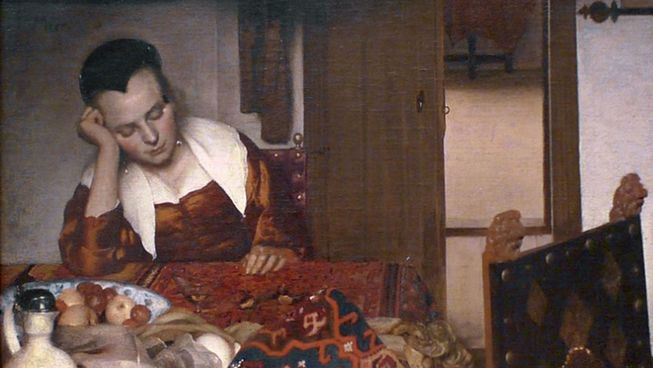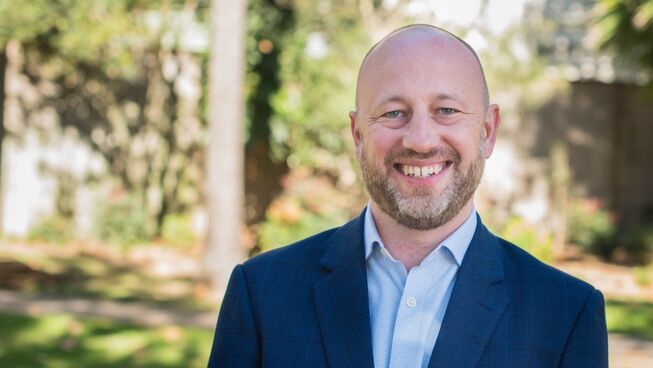I am what I do (part two)

In part one we saw how in an individualistic age our value and worth is tied very much to our work. We considered four diagnostic questions, designed to expose the extent to which we’ve adopted a posture of “I am what I do”. And we also saw the great danger of doing this; the crushing burden that is upon many people.
So what is the way forward? What hope does the Gospel bring to a person immersed in a culture of “I am what I do”?
The right connection
The first step is to recognise that there is a right connection between who we are and what we do. That is, we do learn something about who someone is (their identity) from what they do (their work). The clearest example of this is God. His work is designed to reveal something about Him to us. “Since the creation of the world God’s invisible qualities – His eternal power and divine nature – have been clearly seen, being understood from what has been made” (Romans 1:20, emphasis mine). We know something of God’s “invisible qualities” from His work that is visible.
In particular, God’s work is designed to reveal His glory. “May the glory of the LORD endure forever, may the LORD rejoice in His works” (Psalm 104:31). God’s works reveal to us what makes Him valuable, worthy, glorious. And the “work” that does this most clearly is His work on the cross; a work that (as well as saving us!) reveals much about the kind of God He is and why He is glorious.
Artworks reflecting the artist
How then does this relate to us and our work? Simply that we have been made in the image of this glorious God (Genesis 1:26-28) designed to bear witness to something of His glory. In the same way that artworks give an insight into the passions, interests and concerns of their artist, so we too are artworks; how we live and work is meant to give those watching an insight into the passions, interests and concerns of the great Artist. As American author John Piper puts it, “What would it mean that you created 7 billion statues [artworks] of yourself & put them across the world? It would mean that you wanted people to notice you!”. [1]
In terms of our work then, we’ve been made to work in such a way that we express something of His glory; our work is worship. So our work is not the source of our identity, rather it is the expression of it, as creatures made in the image of a glorious God. [2] We don’t build our value and worth through what we do; rather it is an arena where we express God’s value and worth.
Human sin and pride however mean this connection is warped and disordered. To use another image, instead of being a perfect mirror that reflects God to the world, we are like mirrors that are dirty and smudged, in other places cracked and even shattered. It is hard to see something of Him clearly in our lives as fallen, sinful human beings. Our work doesn’t always reflect something of what the Artist is like; rather it oftentimes reflects human pride and our attempts to build our own value and worth (Genesis 11:1-4). Through our work we try and make ourselves look great, not Him.
The perfect image
But in Jesus all this has begun to change. He is the perfect image of God (Colossians 1:15). He is the perfect mirror reflecting what God is like to the world. He is the perfect artwork who reveals the artist. In Him we have seen perfectly God’s glory (John 1:14). And we have seen it most clearly at the Cross, the definitive moment where God declares your value and worth to Him, in dying for you.
So now those who are in Him, “raised with Christ” (Colossians 3:1), are being “renewed in knowledge in the image of [their] Creator” (Colossians 3:10). Those who are in Christ are like mirrors being repaired, artworks being made whole, so that again we might express in all our lives, including our work lives, something of His glory. Out of being saved by grace and being given a new identity, good works flow (Ephesians 2:8-10). If you are in Christ, your worth and value does not come from your work. Your worth and value does not come from what you achieve or accomplish. If you are in Christ then you are being remade in the glorious image of God, a God who loved you to the point of death on a bloody Roman cross. That’s what makes you valuable.
Freed to express your new identity
Embracing this truth is profoundly liberating and freeing. Because our work no longer defines us, we are free to just go and seek to do great work, expressing something of God’s glory through our work. And in the end, we may just do better work because we’re free from the burden of proving ourselves through it!
This was precisely the experience of Olympic synchronised divers David Boudia and Steele Johnson. The pair won silver at the 2016 Rio Olympics. But it was their interview afterwards that captured the world’s attention. When asked by a reporter how they handled the enormous pressure of the moment Boudia replied, “When I think I’m defined by [my diving] my mind goes crazy, but we both know that our identity is in Christ”. His diving partner Steele then responded, “The fact that going into this event I knew my identity was in Christ, gave me peace”. [3] When your value and worth is secure apart from your work, if you fail it doesn’t crush you, but it also gives you a peace, which in turn frees you to pursue great work.
Free to grow, praise, celebrate and say no
If we return now to our diagnostic questions from part one we’ll see how embracing this truth transforms us in the four areas we considered. Firstly, we’re able to receive criticism and feedback about our work (because it is no longer me personally who is being criticised) and learn and grow from it.
Secondly we’re able to receive praise for our work with humility and acknowledge the contribution of others. We’re free to shift the praise to those who also deserve it, because we’re not measuring our value and worth any longer on the quantity of praise we receive for our work.
Thirdly we’re able to celebrate the good work done by others rather than envy it. I can see the great work that others do and “just love the fact that it was done. For it not to matter whether it was their success or your success. To love it the way you love a sunrise”. [4]
Fourthly we are free to say no to work. We will desire to give and love and serve through our work, but out of a desire to give and love and serve, not build our value and worth. But in order to be able to give and love and serve well we’ll at times say no to work and opportunities.
These Gospel truths are powerfully liberating. They free us from the burden of proving ourselves through our work. That is a message of hope. And as we embrace that hope and live it, who knows the opportunities that might provide to share this wonderful hope to colleagues who are weighed down by the burden of “I am what I do”.
[1] John Piper, desiringgod.org/articles/why-do-i-exist
[2] ”Humanizing work”, 2014 Australia Gotham Intensive Handbook, 50.
[3] thegospelcoalition.org/article/3-things-to-learn-from-olympians-david-boudia-and-steele-johnson1/
[4] Timothy Keller, The Freedom of Self-forgetfulness, 35.
Image: karengately.files.wordpress.com/2013/06/who-am-i.jpg




